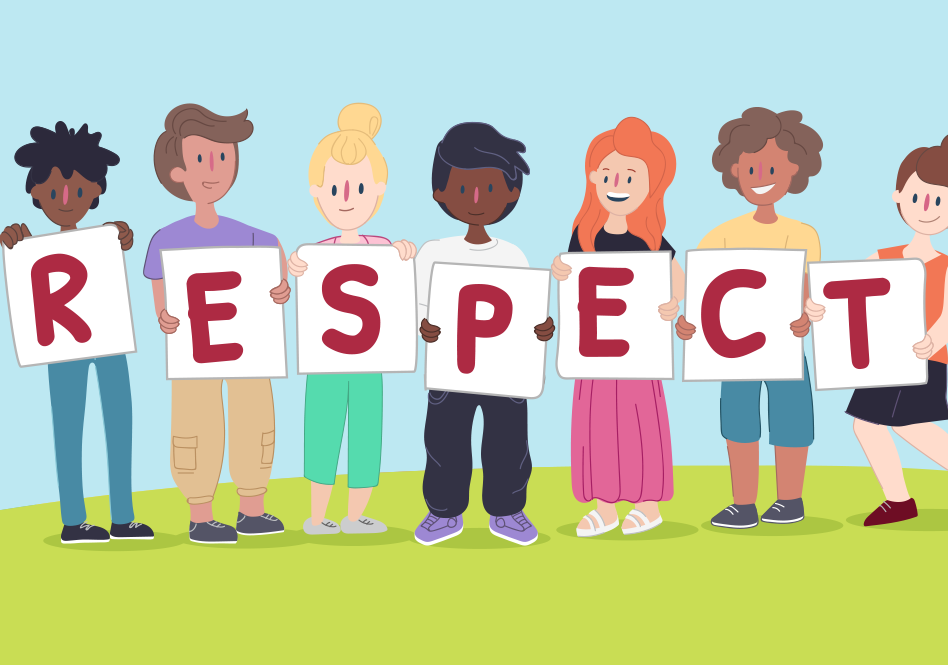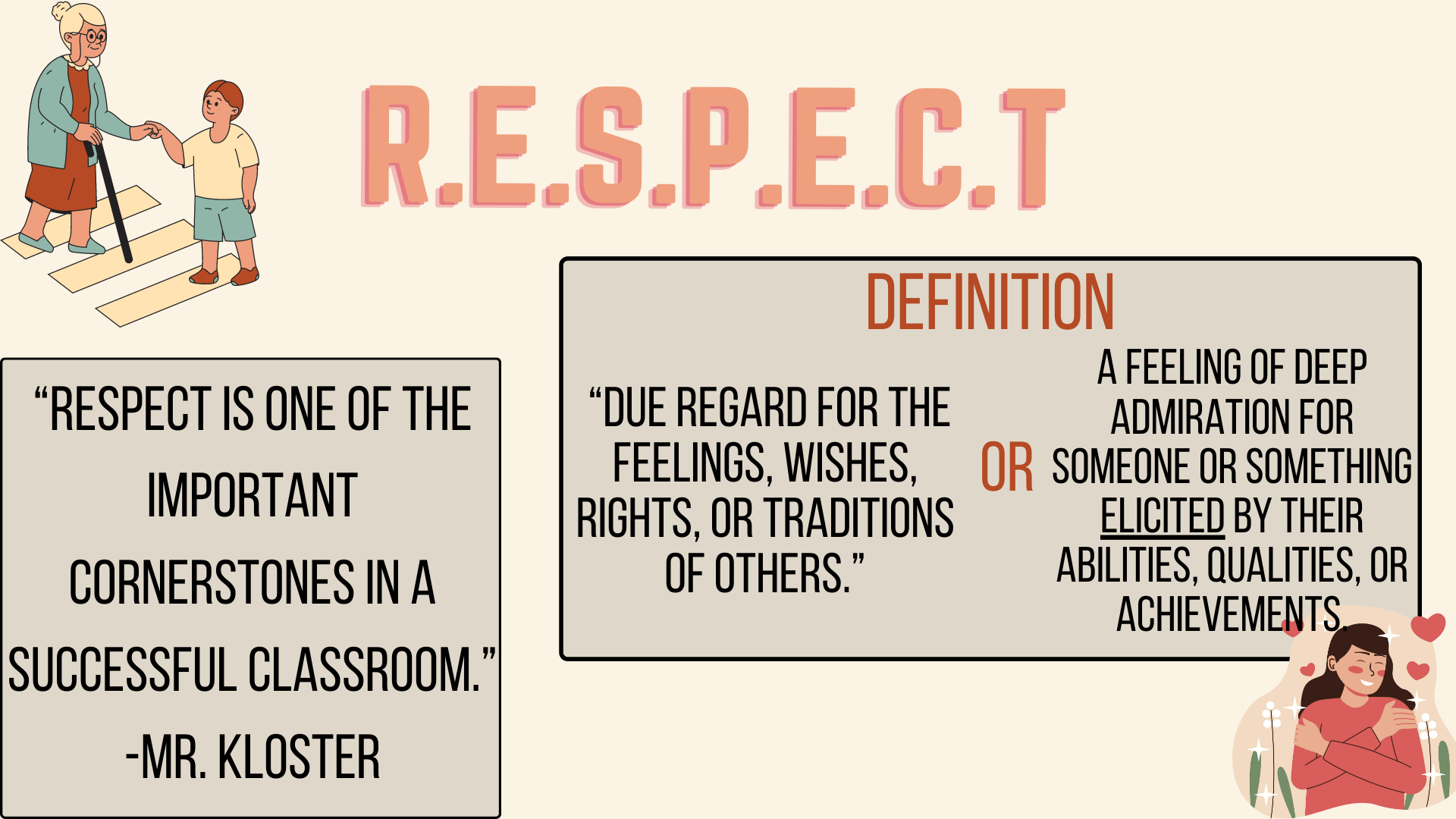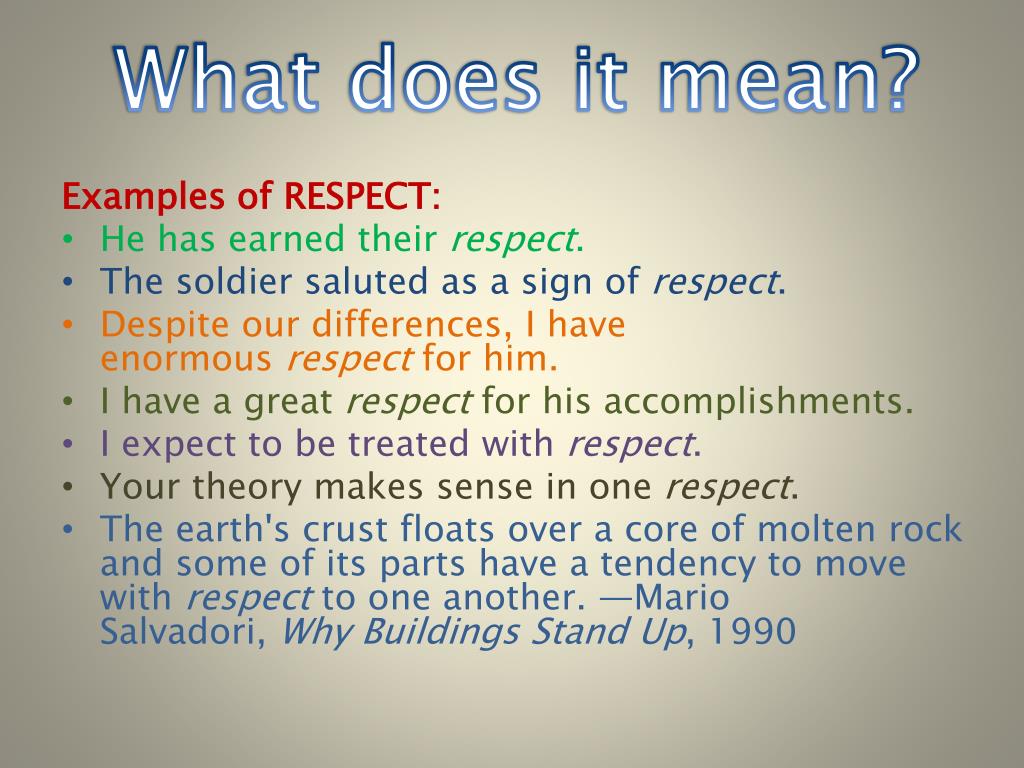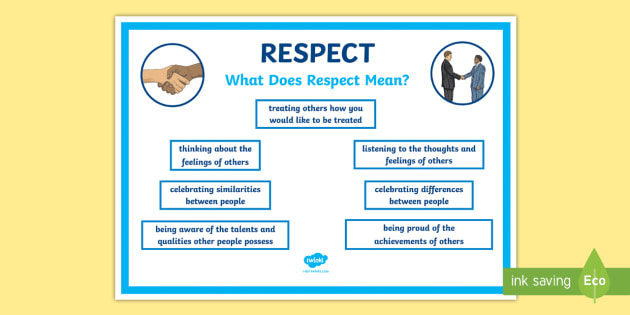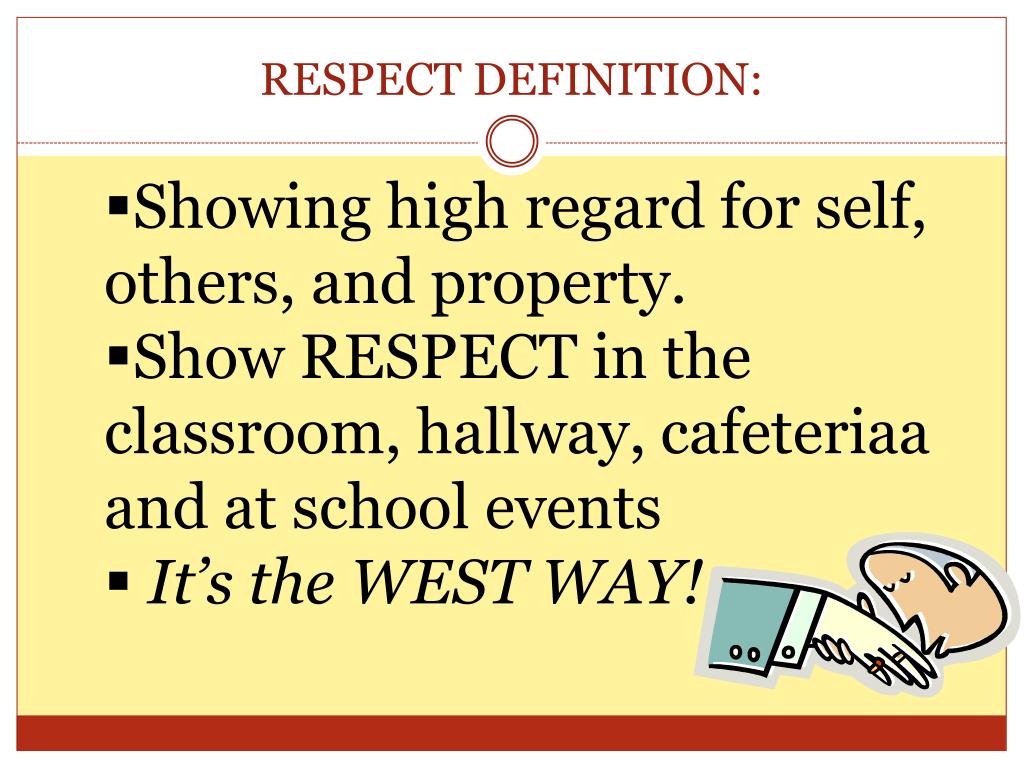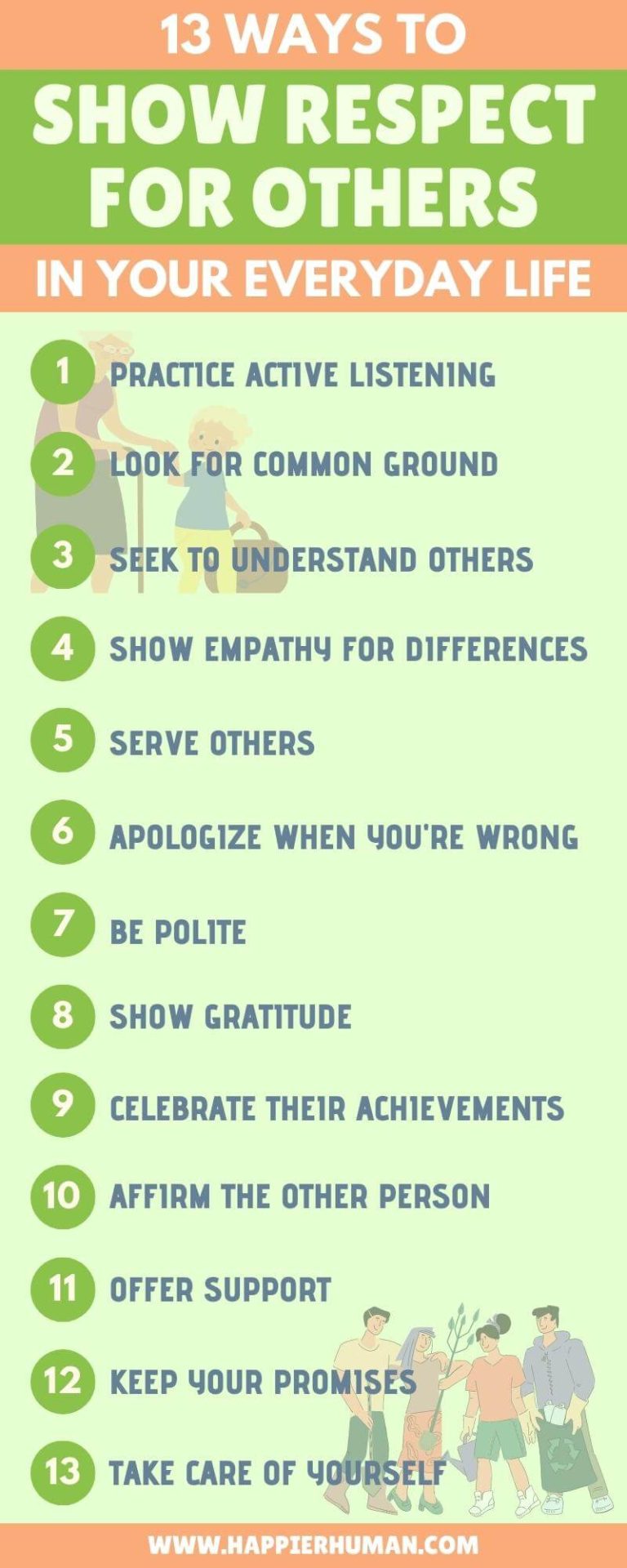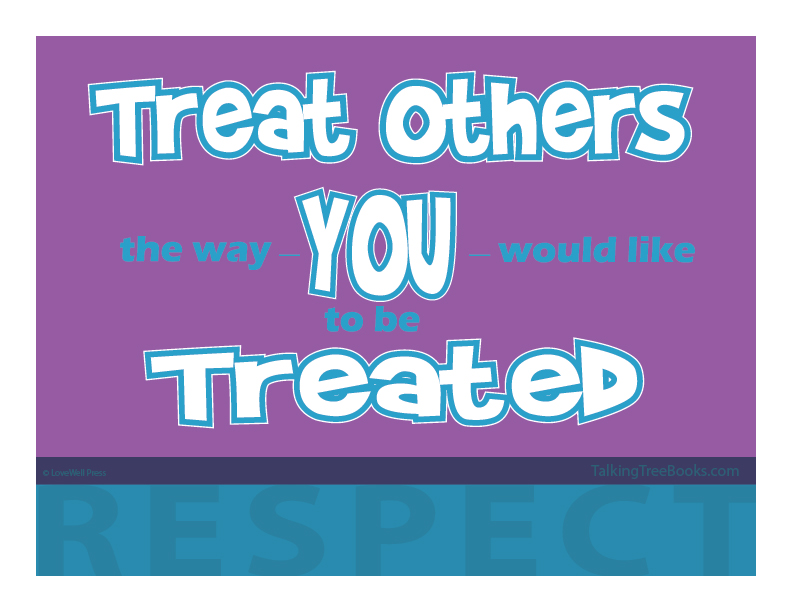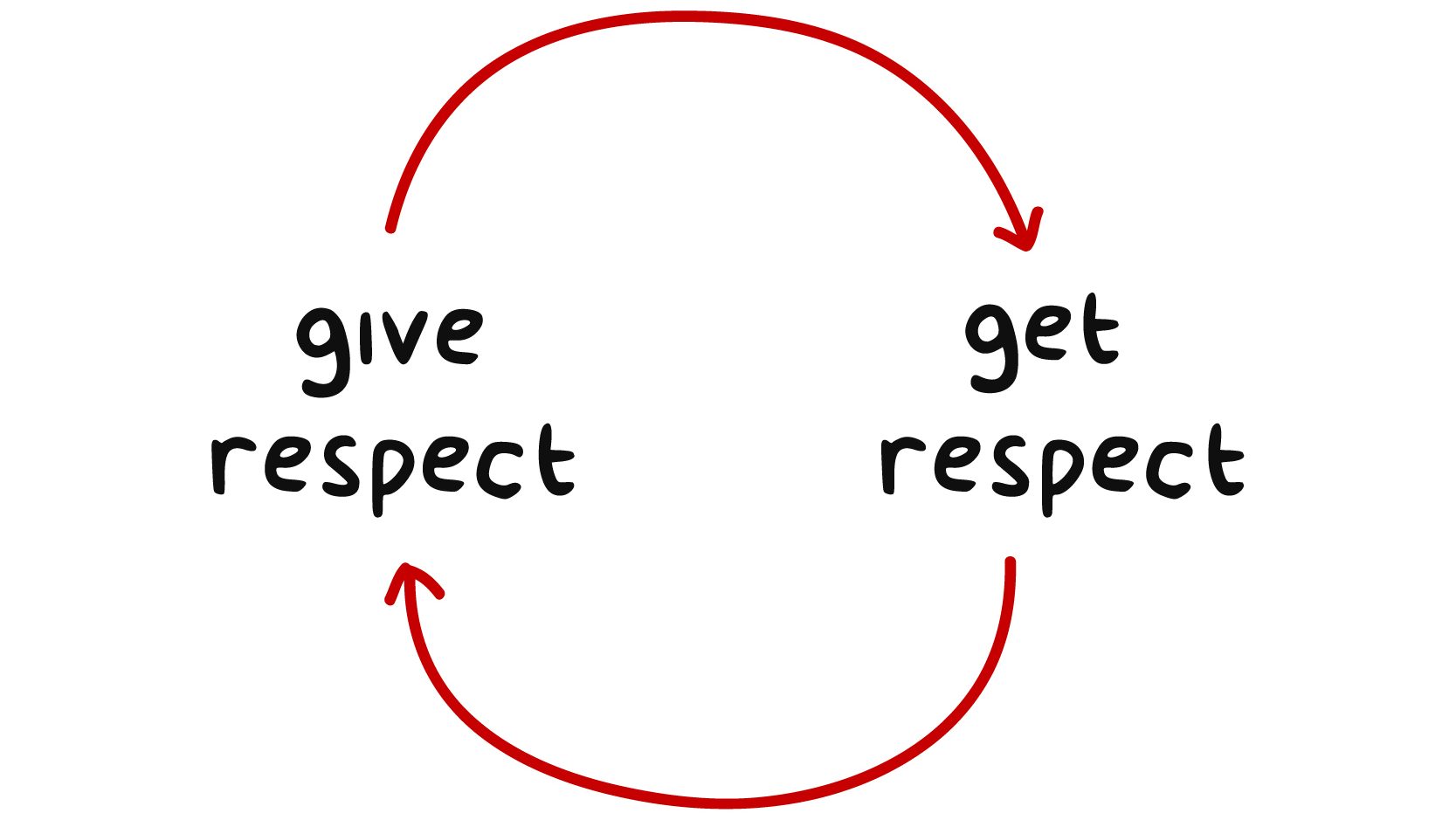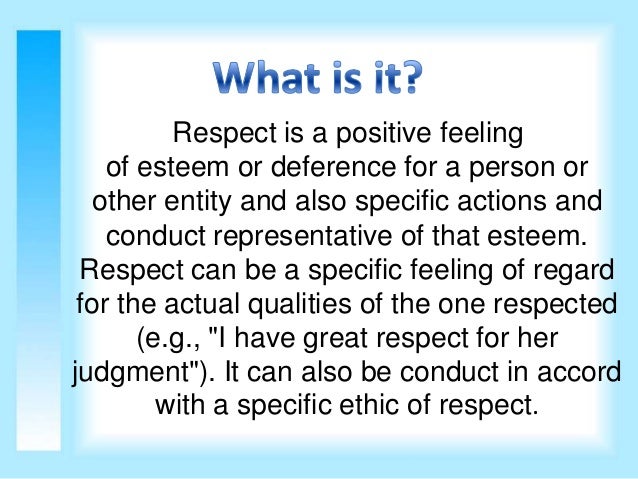What Does It Mean To Be Respectful
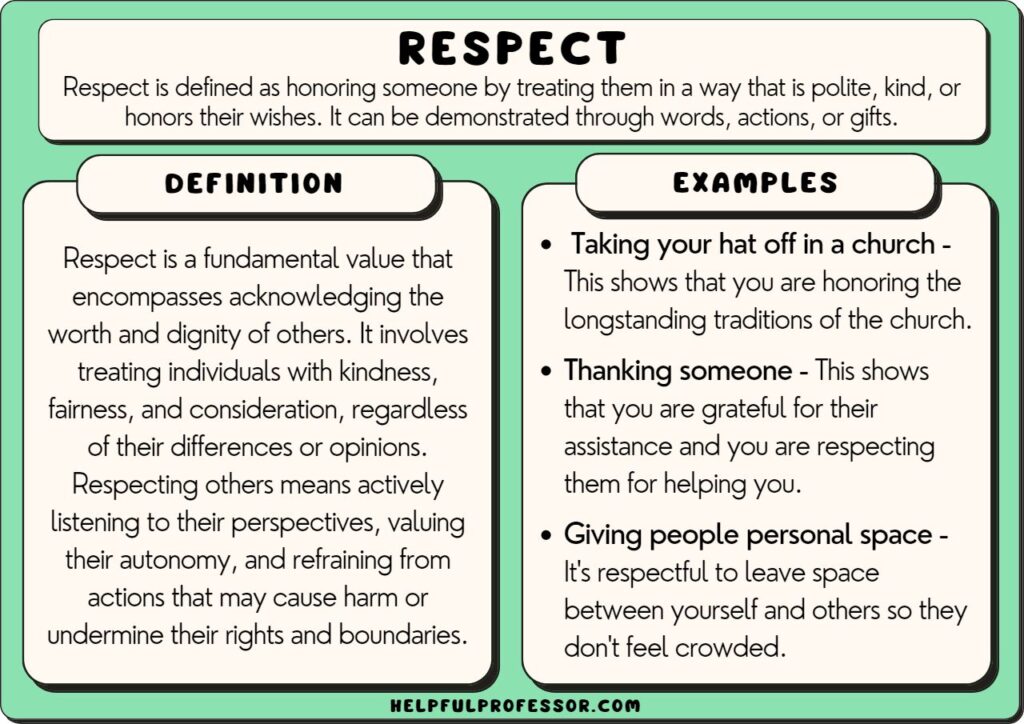
In an era defined by rapid communication and increasingly polarized viewpoints, the concept of respect often feels diluted, misunderstood, or even weaponized. What was once considered a foundational element of societal cohesion now seems to be a moving target, sparking debate and leaving many uncertain about its true meaning.
At its core, respect is the act of acknowledging and valuing the inherent dignity of another person. This article will delve into the multifaceted nature of respect, exploring its various dimensions, societal implications, and the evolving understanding of what it truly means to be respectful in today's world. It will examine how respect manifests in different contexts – from interpersonal relationships to institutional settings – and the consequences of its presence or absence.
The Foundation of Respect: Human Dignity
Respect begins with the recognition of the intrinsic worth of every human being. This principle, often enshrined in human rights declarations, asserts that each individual deserves to be treated with consideration and dignity, regardless of their background, beliefs, or status.
The United Nations Universal Declaration of Human Rights, for example, underscores this notion, emphasizing the equality of all individuals in dignity and rights. This foundational understanding forms the bedrock upon which respectful interactions are built.
Respect as Communication: Active Listening and Empathy
Respectful communication goes beyond simply hearing words; it involves actively listening to understand another person's perspective, even when disagreeing with their views. It requires empathy, the ability to put oneself in another's shoes and appreciate their feelings and experiences.
Dr. Brené Brown, a research professor known for her work on vulnerability and empathy, emphasizes the importance of connection in fostering respect. "Empathy is feeling *with* people," she states, highlighting its crucial role in building understanding and bridging divides.
Respect in Action: Boundaries, Consent, and Inclusivity
Respect extends beyond words and encompasses actions that demonstrate consideration for others. This includes respecting personal boundaries, seeking consent in interactions, and actively promoting inclusivity.
The concept of consent, particularly in interpersonal relationships, has gained increasing attention, underscoring the importance of voluntary and informed agreement. Similarly, creating inclusive environments requires actively challenging bias and discrimination, ensuring that everyone feels valued and respected.
Respect in the Digital Age: Navigating Online Interactions
The rise of social media and online communication has introduced new challenges to respectful interactions. The anonymity afforded by the internet can often embolden disrespectful behavior, leading to cyberbullying, harassment, and the spread of misinformation.
Organizations like the Cyber Civil Rights Initiative are working to combat online abuse and promote respectful online communication. They advocate for digital literacy, responsible online behavior, and the implementation of policies to address online harassment and abuse.
The Consequences of Disrespect: Societal Breakdown and Conflict
The absence of respect can have devastating consequences, contributing to societal breakdown, conflict, and discrimination. When individuals and groups feel disrespected, it can erode trust, fuel resentment, and lead to violence.
Historical examples, such as the Holocaust and the Rwandan genocide, serve as stark reminders of the dangers of dehumanization and the importance of upholding respect for human dignity. These events underscore the urgent need for promoting respect and understanding in all aspects of life.
Cultivating a Culture of Respect: Education and Dialogue
Building a more respectful society requires a multifaceted approach, including education, open dialogue, and the promotion of empathy and understanding. Educational programs can play a vital role in teaching children and adults about respect, diversity, and inclusion.
Furthermore, fostering open dialogue across different perspectives can help bridge divides and promote mutual understanding. By engaging in respectful conversations, individuals can learn from each other, challenge their own biases, and build stronger relationships.
Moving Forward: A Collective Responsibility
Ultimately, fostering a culture of respect is a collective responsibility. It requires individuals, communities, and institutions to actively promote respect in all aspects of life. By recognizing the inherent dignity of every human being, practicing active listening and empathy, and challenging bias and discrimination, we can create a more just and respectful world for all.
As society continues to evolve, our understanding of respect must also adapt to meet new challenges. By embracing a broad and inclusive definition of respect, we can build a more harmonious and equitable future, where everyone feels valued, heard, and respected.
